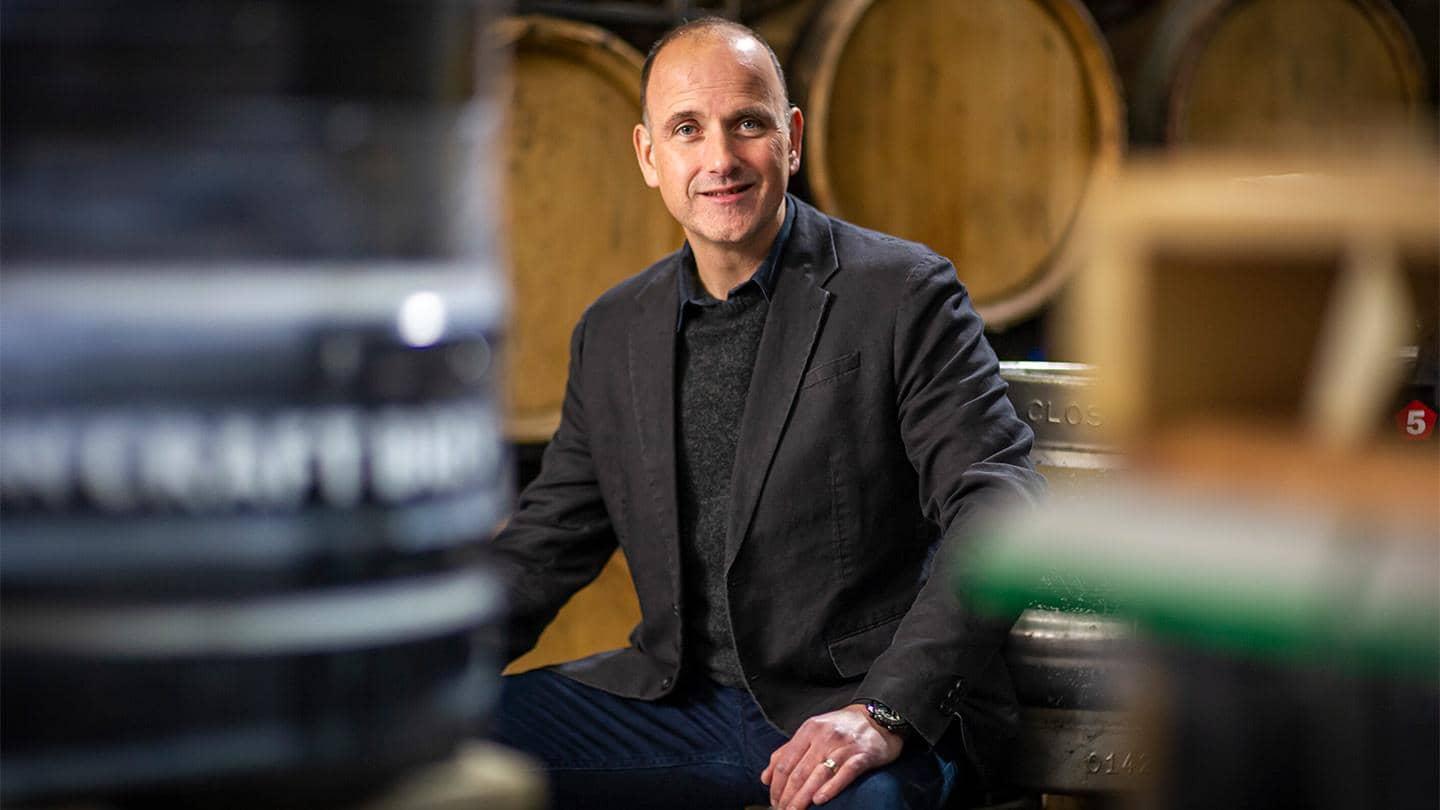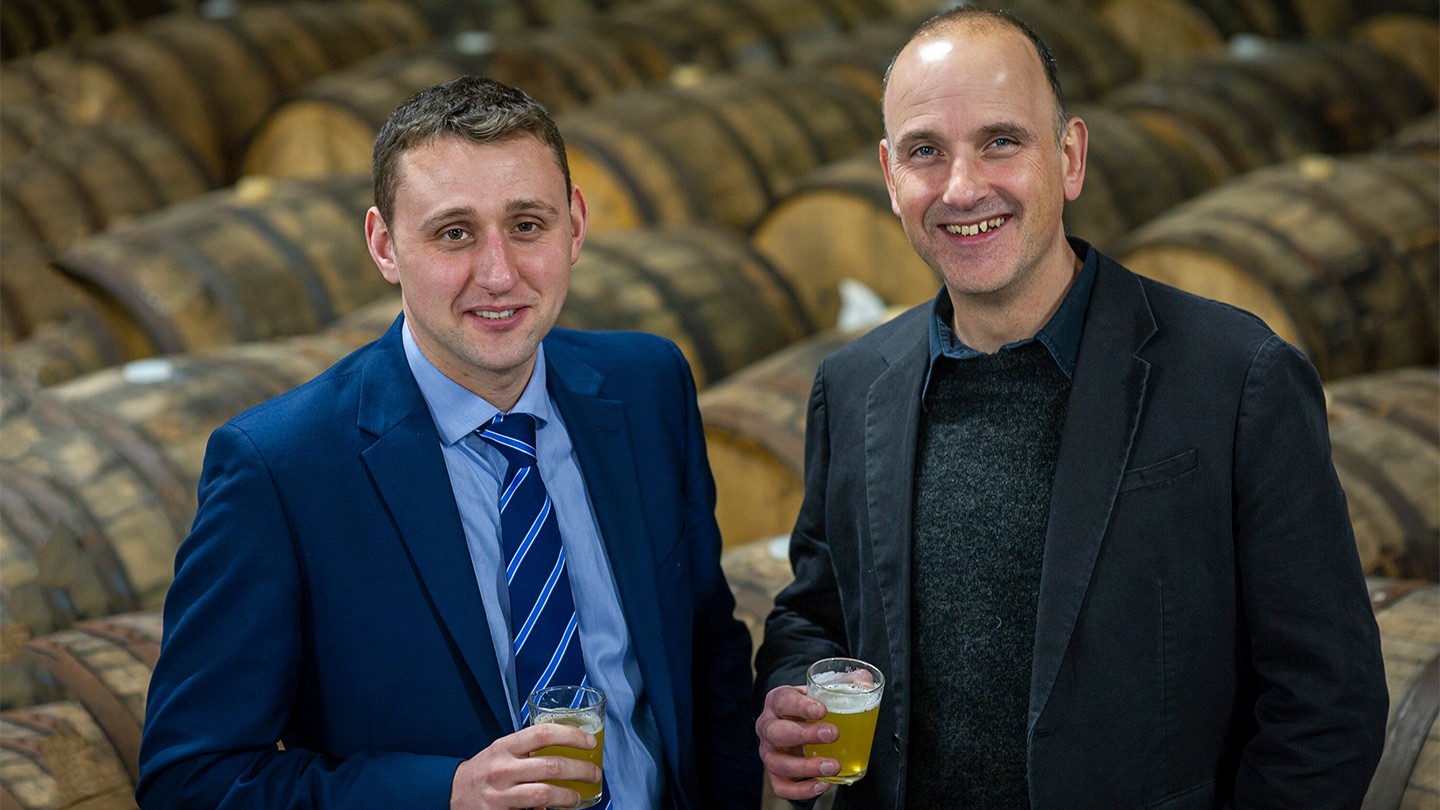
Growth
In Business: brewing up a storm
It’s boom-time for Britain’s craft brewers, as the nation’s drinking habits change from mass-produced bitters to bespoke ales and chocolate stouts. We see how Barclays’ £14bn SME lending fund is backing the UK and helping one brewer grow its business and deliver prize-winning beers to a global market.
Darron Anley opened his brewery, Siren Craft Brew, in 2013 with the advice of Californian brewers ringing in his ears: “Whatever size brewery you think you need, double it. And if you can afford to, treble it.”
Having been “on a journey, home-brewing and finding out how beer could be more than just a 4% golden ale”, he was ready to take the next step: buying a 5,000-litre brewing facility and hiring a professional brewer. “Using the advice I had, I knew it was important to be able to produce good product from day one, to scale quickly and get beer out to as many people as possible,” he says.
Fast-forward to 2020, and Siren employs 37 people at its base in Finchampstead, south of Reading. “We were about the 1,250th brewery registered as trading in the UK,” says Darron, “and there are now nearly 2,750. For craft beer fans we’re quite old-school now, which seems mad for a seven-year-old business. But we still have a reputation of being bold and innovative and trying new things.” Voted second best new brewery in the world after its first year of operation, Siren has been listed in the top 100 ever since.
Siren’s growth is increasing after the purchase of new canning machinery. For this, and other investments, Darron decided to raise capital partly through bank finance. “We already knew how well our relationship manager at Barclays, Mathew Howson, understood our business,” says Darron, “but he pulled in all the right people to work quickly and efficiently and tailor quite a few things around their service that really work for us.”
Siren is one of many British companies to gain asset finance from Barclays’ £14bn SME lending fund – set up by the bank to help build resilience during uncertain times. Darron says that “as well as the finance, Mathew has those connections within Barclays to dial us into the right products and services. For example, we’ve been connected to invoice financing, and with foreign exchange, because we do quite a bit of that, we’re plugged in there and saving quite a bit of money.”
The combination of financial support and expert relationship director advice is helping the Berkshire brewery go global. Siren exports to over 15 countries including the US and Japan, and Darron says the company is expanding and purchasing new tanks to allow exports to grow with that increased production capacity.
The little brewery that cans
With a mission to “introduce full-flavoured and forward-thinking beers to as many people as possible”, Darron believes beer is still vastly underestimated in the UK, saying “there’s a beer for everyone. There are a whole host of aromas, flavours, colours and textures to enjoy”. Its core range includes Yu Lu, a session pale ale that Darron describes as “hoppy with lemon zest and a little bit of earl grey, balancing out bergamot” and Broken Dream, a breakfast stout brewed with milk sugar and specially selected coffee which won the Supreme Champion Beer of Britain award from CAMRA in 2018.
Growth, and the production of over three million pints of beer a year, hasn’t harmed Siren’s innovation, as confirmed by a glance of a small-batch product list containing a vast variety of coffee, fruit and chocolate-infused bottles, beers aged in bourbon barrels and the occasional 15% imperial stout. What has changed for Siren is the way “small-pack” beer (cans and bottles) is delivered, and the need to invest in new canning machinery was driven by small-pack’s popularity.
We already knew how well our relationship manager Mathew understood our business, but he pulled in all the right people to work quickly and efficiently and tailor quite a few things around Barclays’ service that really work for us
Managing Director, Siren Craft Brew

Siren Craft Brew’s Managing Director Darron Anley (right) with Barclays Relationship Manager Mathew Howson
“We were down to about 16% small-pack,” says Darron. “Most of our peers work at around 40% small pack. The cash margins are significantly better and we were missing out on that and also a massive part of the market. Two years ago the ratio for sales tripped over to more beer being drunk at home than at bars and restaurants. So, we commissioned the canning line and it’s having a positive impact. We’re up to 21% small-pack already, and that’s with a 30% total volume increase as well. So it’s moving in the right direction – we’re hoping for 30% this year – which is massively transformational for our bottom line.”
The brewery also operates a taproom at its Berkshire base. “At weekends people come from all over the country – which is impressive considering it’s a bar in the middle of an industrial estate. This year we want to build on the community aspect of that and on our charity donations. It’s pretty much a half-million pound business, just the tapyard, and there are community opportunities attached to that.” The bar has also hosted networking events for the Reading branch of Barclays and its clients.
Along with his ambition to open up new export markets, Darron says that “UK retail is where we want to see the biggest growth.” That growth needs to be sustainable, he continues: “We don’t need to be BrewDog. We love what we we’re doing and we love that customers love what we’re doing. We’ll grow that sustainably, keeping the profit in the business and making sure we can train and pay our staff well. We’re aiming for 27% growth this year, which might look pretty punchy, but in such a competitive market we need that growth just to stand still.”